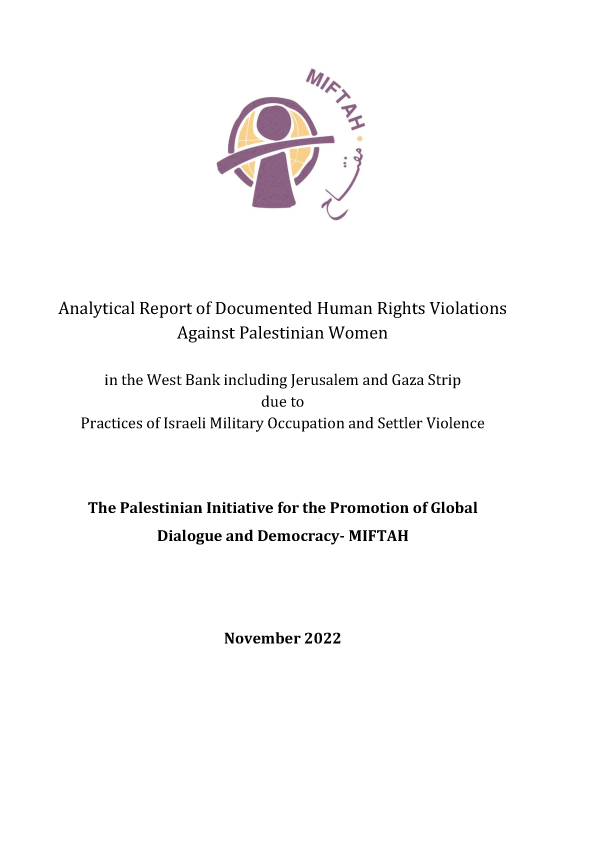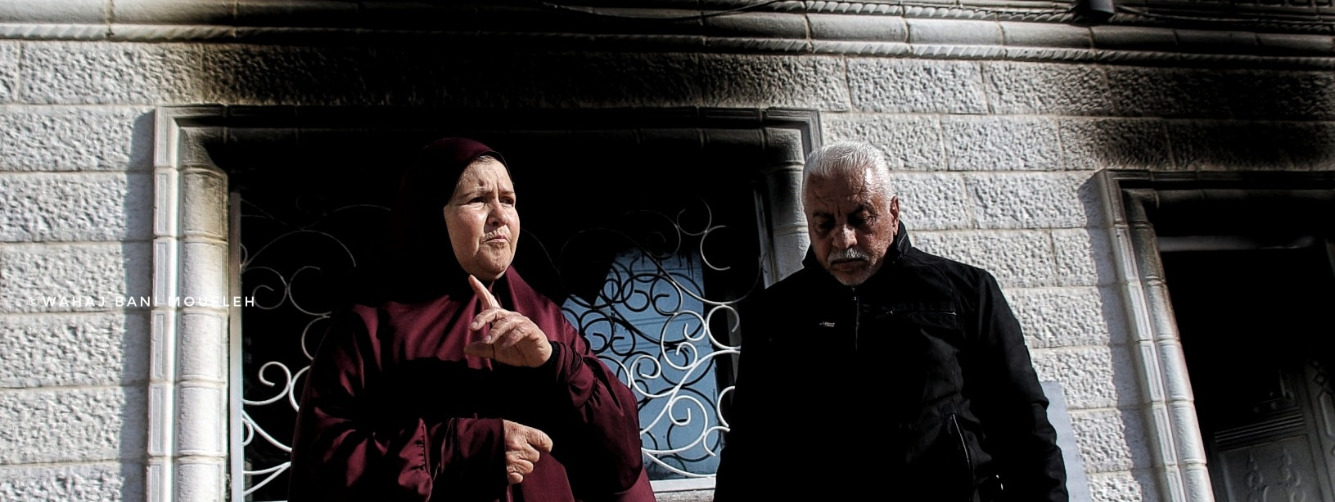Israel boasts a history decorated with defiance of international law and regulations, a tradition that remains today. Violations continue daily with the construction of the Separation Wall, amid hushed criticism from the international community. The most evident exploitation of Israel’s breach of convention is the implementation of new borders within the West Bank, an occupied territory. This effective annexation of land, alongside combined violations of basic human freedoms including freedom of movement, destruction of private property, and collective punishment of the civilian population have highlighted Israel’s selfish and destructive policies. The current construction of the first phase of the wall will take with it 2% of the West Bank as it curls around the Green Line, effectively cutting off 200,000 civilians form their lands and workplaces. Over 100,000 trees have been uprooted and over 6,000 jobs are expected to fall victim in the first phase alone. The following fact sheet outlines the present neglect Israel is exhibiting with respect to International Humanitarian Law. For detailed reference to the effects of the construction refer to The Anti-Apartheid Wall Campaign: The Wall’s First Phase fact sheet, as well as weekly updates.
Hague Regulations 1907 Section III Article 46:
• Section II Article 23(g): “[it is especially forbidden] to destroy or seize the enemy’s property, unless such destruction or seizure be imperatively demanded by the necessities of war…”
• Section III Article 46: “Family honour and rights, the lives of persons, and private property, as well as religious convictions and practice must be respected. Private property cannot be confiscated.”
• Section III Article 50: “No general penalty, pecuniary or otherwise, shall be inflicted upon the population on account of the acts of individuals for which they cannot be regarded as jointly or severally responsible.”
• Section III Article 52: “Requisitions in kind and services shall not be demanded from municipalities or inhabitants except for the needs of the army of occupation.”
• Section III Article 55: “The occupying State shall be regarded only as administrator and usufructuary of public buildings, real estate, forests, and agricultural estates belonging to the hostile State, and situated in the occupied country. It must safeguard the capital of these properties, and administer them in accordance with the rules of usufruct.” (Namely, the occupier is forbidden from destruction or alteration of the property in question)
FOURTH GENEVA CONVENTION
• Article 52: [prohibits] “All measures aimed at creating unemployment or at restricting the opportunities offered to workers in an occupied territory”
• Article 53: “Any destruction by the Occupying Power of real or personal property belonging individually or collectively to private persons, or to the State, or to other public authorities, or to social or cooperative organizations, is prohibited, except where such destruction is deemed absolutely necessary by military operations.”
Legal Issues Regarding the Applicability of the Occupied Territories: Israel’s Stance
• As a signatory, Israel recognizes the Hague Regulations as customary international law, and enforceable in Israeli courts.
• Israel claims exemption from the Regulations as they (Regulations) have not been domestically ratified by the Knesset.
• Israel claims the principles of the Fourth Geneva convention are not applicable on the supposed grounds that no “legitimate ousted sovereign” existed. (The West Bank and Gaza Strip were never internationally recognized as belonging to Jordan and Syria)
• Although a signatory of the 1966 International Covenant on Political and Civil Rights (ICCPR) and 1966 International Covenant on Economic Social and Cultural Rights (ICESCR), which outline universally accepted notions of fundamental human rights, Israel argues that there is no application in the Occupied Territories, on the consideration that Palestinians are considered aliens and not within national borders.
Legal Issues Regarding the Applicability of the Occupied Territories: International Stance>
• The Hague Regulations and Fourth Geneva Convention prohibit collective punishment, and acts of aggression against the resident population. Additionally, Occupying Force is obligated to ensure the safety and dignity of the resident population is sustained while protecting their private property.
• The principles set forth are accepted as customary international law. Therefore, Israel is obliged to act in accordance with the procedures set forth, regardless of domestic ratification. Only in the case of a treaty based law would Israel’s stance be applicable.
• As reported by the International Committee of the Red Cross, the sovereignty of parties in a conflict is not the underlying concern of the Geneva Convention. Rather, it applies “to all cases in which territory is occupied in the course of an armed conflict, irrespective of the status of that territory.”
• Israel has employed a double standard with regards to the Hague Regulations. Employing defective arguments (outlined above), Israel has claimed exemption from the Regulations in the interest of continuing construction of the Apartheid Wall. Subsequently, those same provisions are used to justify the seizure of private property (upon which the wall is being constructed) in times of war
• The UN Security Council Resolution 681 (1990), UN General Assembly Resolution 56/60 (2001), and the High Contracting Parties to the Geneva Conventions (2001) have confirmed that the Fourth Geneva Convention is applicable to the Occupied Territories and thus made Israel’s compliance mandatory.
• The ICCPR holds that both nationals and aliens are subject to the conditions of human rights observation. Furthermore, it applies to “all individuals” within a states “territory and subject to its jurisdiction”
• The UN Human Rights Committee and the UN Committee on Economic, Social and Cultural Rights have disregarded sovereignty issues as a prerequisite for compliance with the ICCPR and ICESPR.








